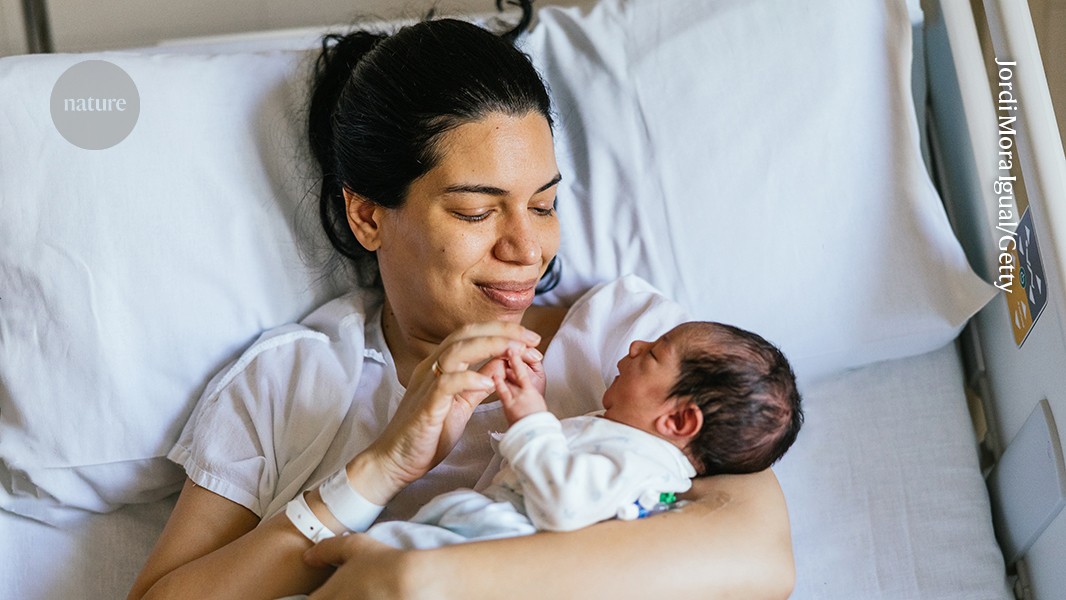Feeding a baby born by caesarean section milk containing a tiny bit of their mother’s poo introduces beneficial microbes to their gut, according to a clinical trial. The approach might one day help to prevent diseases during childhood and later in life.
Some studies show that babies born by c-section, rather than vaginal birth, have a higher risk of asthma, inflammation of the digestive system and other diseases associated with a dysfunctional immune system… Experiments have attempted to compensate for that by swabbing babies born by c-section with microbes from their mother’s vagina or giving them these microbes orally, a practice known as ‘vaginal seeding’. But this technique has had limited success, because vaginal microbes, scientists have learnt, cannot effectively colonize infants’ guts…
Helve and his colleagues have been pioneers in testing whether faecal transplants can instead improve the health of a baby’s microbiome. In their latest trial, which recruited women scheduled for a c-section at the Helsinki University Hospital, the researchers mixed a fluid containing 3.5 milligrams of a mother’s poo into milk and gave the concoction to the corresponding baby. They did this for 15 babies during their first feed. Another 16 babies received a placebo.
An important next step in the field, Shao says, would be to pinpoint the specific maternal gut microbes that are most likely to transmit to and colonize their babies’ guts. Shao asks: “If these species do exist across human populations, wouldn’t it be more effective and safer” to give newborns a laboratory-made transplant that’s guaranteed to be pathogen-free?
“This is the shit”
But seriously don’t try this at home. Fecal matters can contain pathogens, in fact 54 of the 90 women screened were excluded because of detected pathogens. If this goes well maybe ppl can make some type of lab-made probiotics for C-section babies or stuff
The abstract presented at IDWeek 2024: https://idweek2024.eventscribe.net/index.asp?presTarget=2886841



Different study: